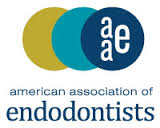Do you notice a popping or clicking sensation in your jaw? Ever wonder why your jaw pops? You could be experiencing the warning signs of a serious oral health concern. Over ten million people in the United States suffer from TMJ disorder, also known as TMD. Fortunately, we can offer treatment options to improve the function of your jaw joints and stop TMD-related symptoms.
Try Our TMJ Disorder Quiz
- True or False: A popping jaw could be a sign of TMD.
- True or False: Strain on the jaw joints causes the disorder.
- True or False: The issue is sometimes linked to bruxism.
- True or False: We can treat the issue with an oral appliance.
Answer Key
- True. Warning signs of TMJ disorder may include popping or clicking in the jaw, chronic headaches, soreness in the jaw or face, and pain in the neck or shoulders. If one or more of these potential warning signs sound familiar, the please talk to your dentist. After a thorough diagnosis the doctor can recommend any necessary treatment.
- True. Misalignment, tooth loss, bruxism (teeth grinding), and injury to the jaw or face can lead to strain on the jaw joints. Soon, you can develop TMD and have trouble opening and closing your mouth.
- True. When we grind our teeth we strain the jaw joints, making TMD more likely to develop. In addition, TMD itself can increase the chances of bruxism occurring. Warning signs of bruxism include sore jaws, toothaches, tooth sensitivity, and headaches. Over time, bruxism can potentially damage the teeth, causing chips and fractures to occur.
- True. An oral appliance is similar in appearance to a nightguard and is worn during sleep. The device repositions the jaw to ease strain on the joints. In addition, the barrier the appliance places between the upper and lower teeth can limit the risk of further damage from bruxism.










